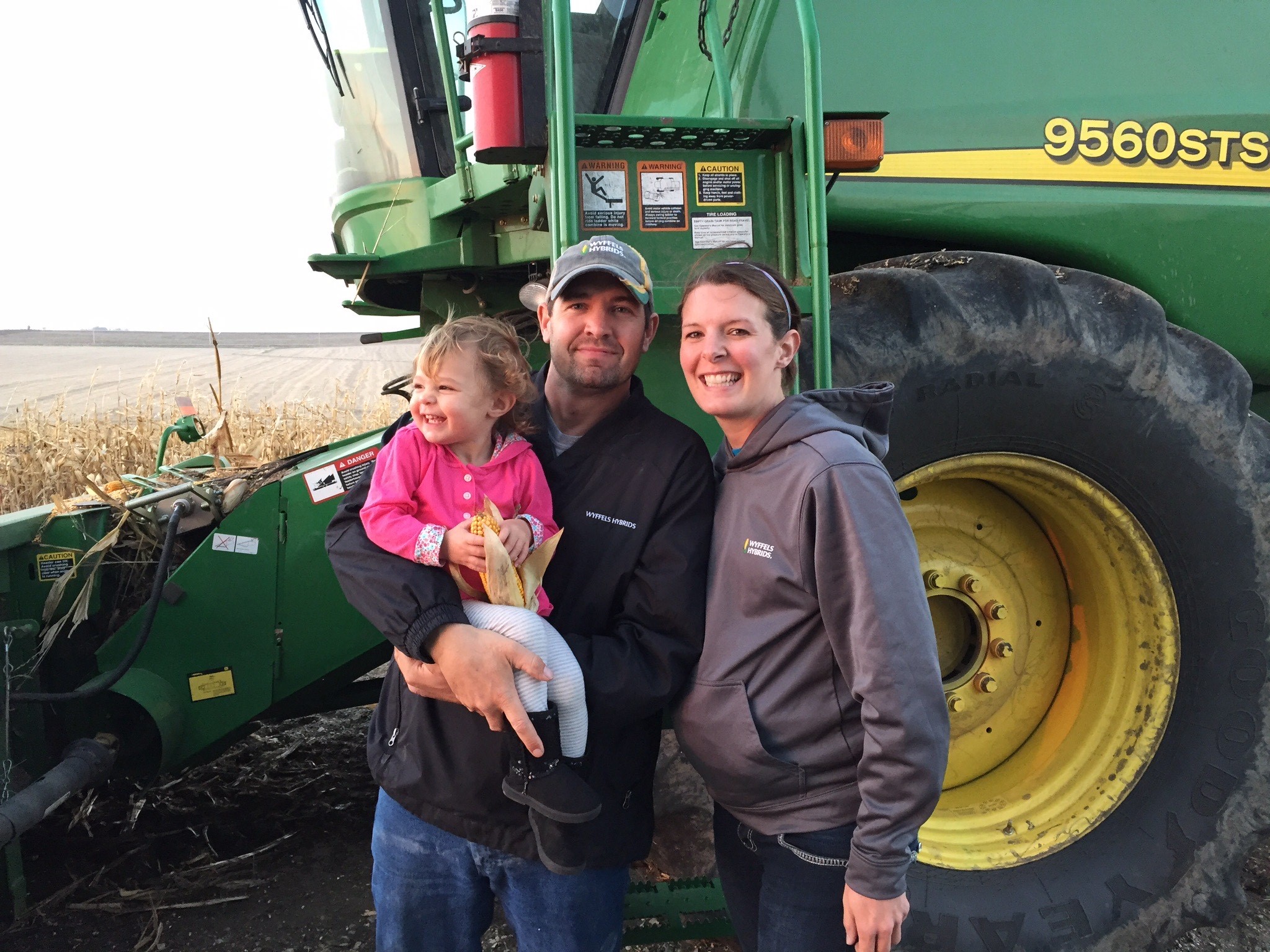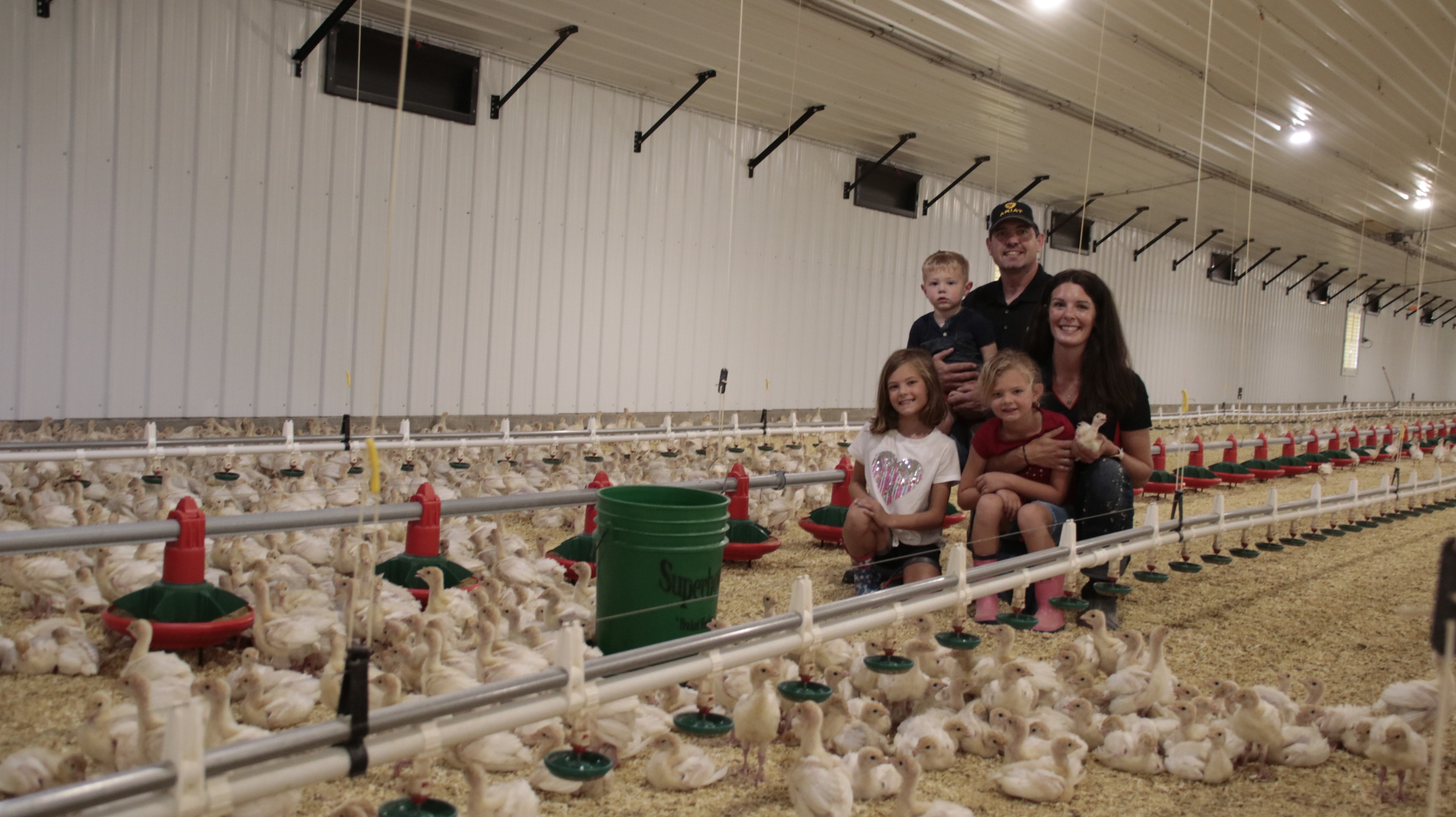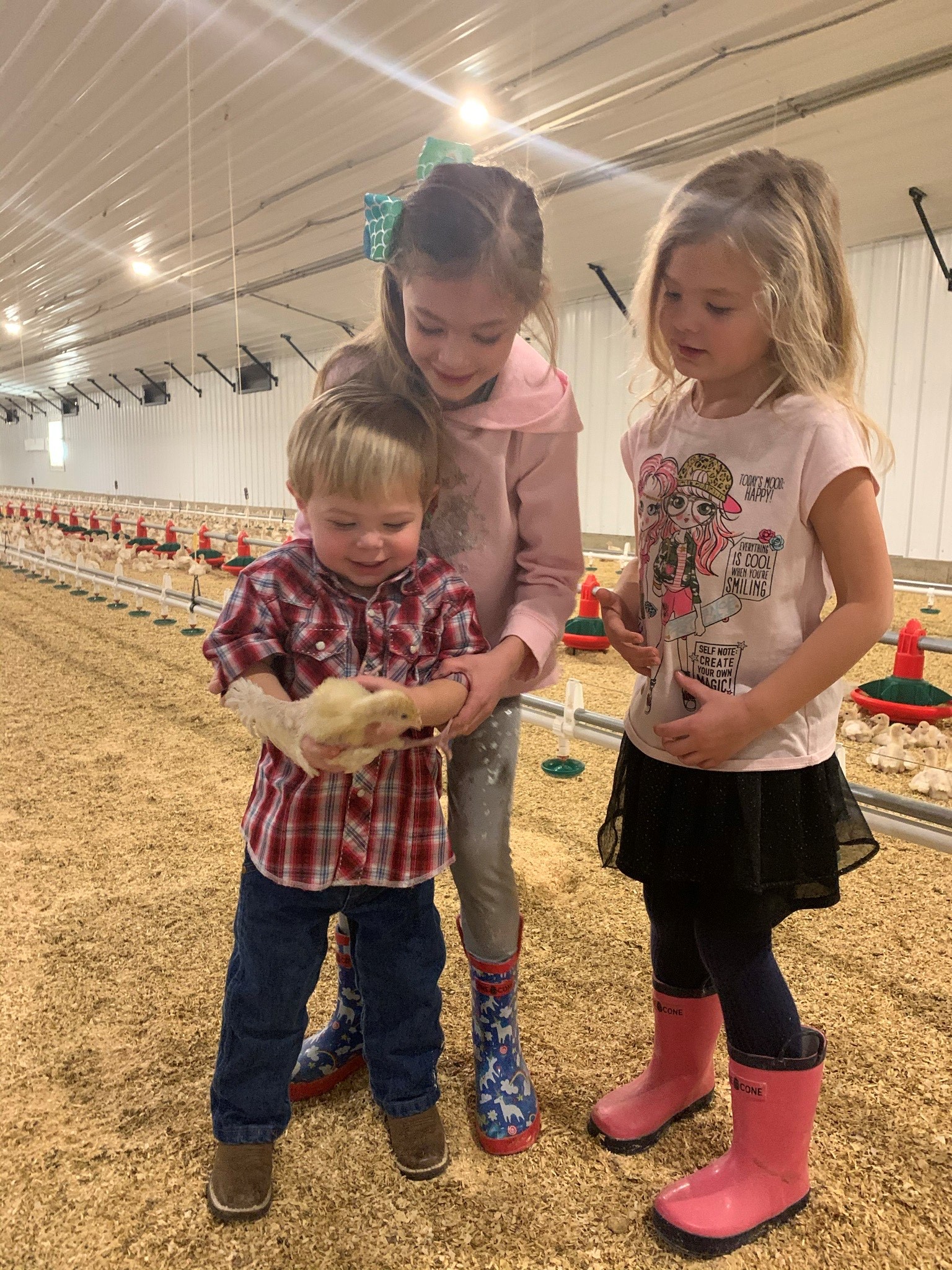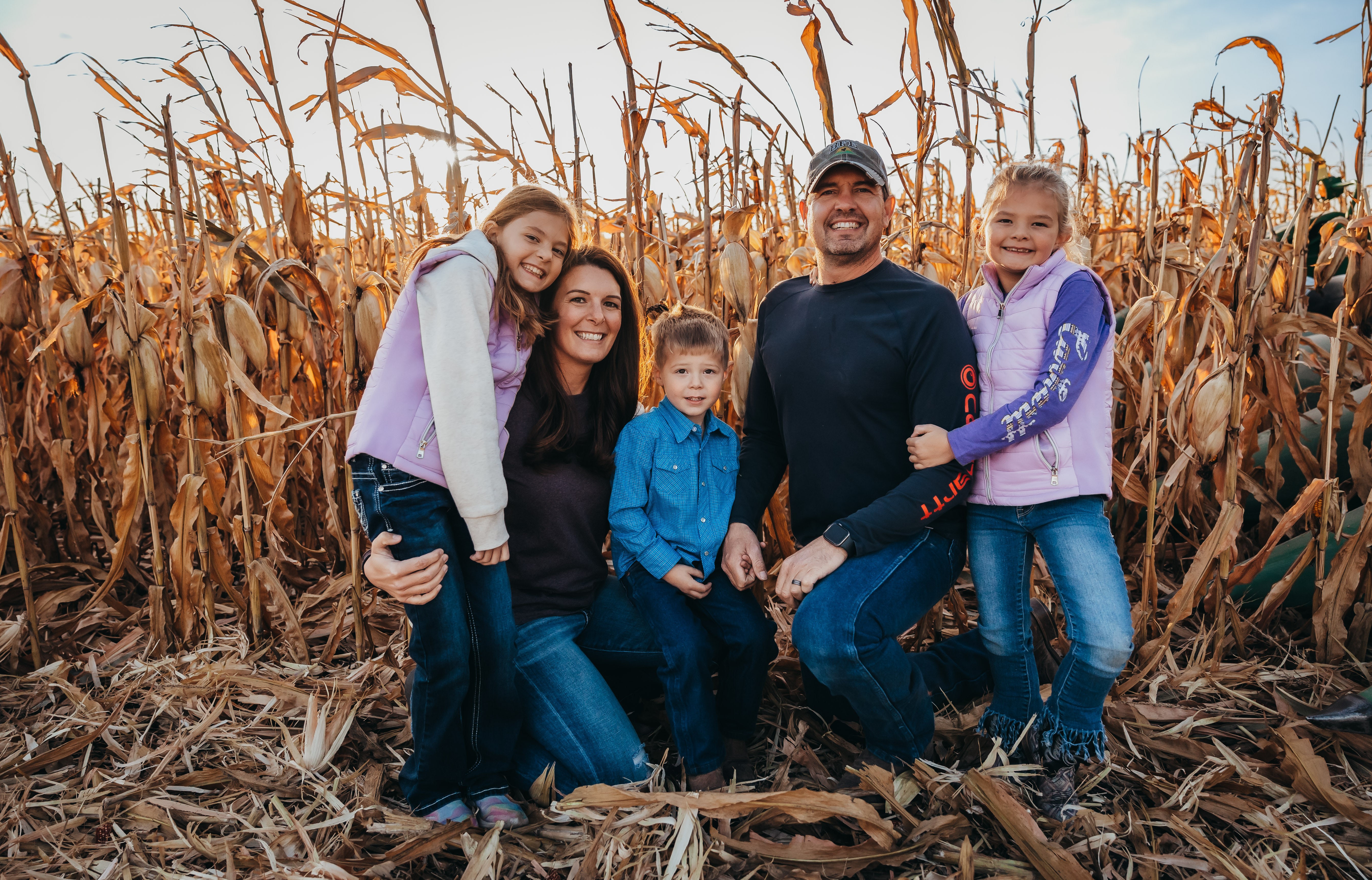Faces Behind Farm Policy: Josh and Kelli Berg
Josh and Kelli Berg are proof that you don’t have to grow up on a farm or ranch in order to be successful in agriculture.
Although they may have not spent harvest evenings in the combine or tended to three-day-old turkey poults as children, the Bergs are creating that childhood for their kids. The opportunity to raise their children on the farm is one Josh and Kelli hold dear and use as inspiration to overcome the many challenges that first-generation farmers face.
The number of Americans directly employed by farming is just over one percent. It’s easy to see why most people choose a different career path with such an intense level of barriers to entry – from cost of land, equipment and infrastructure and the risks that come with farming – volatile weather, trade disputes, economic uncertainty and more. That’s what makes stories like Josh and Kelli’s all the more encouraging.
In 2009 a retiring farmer offered them an opportunity to take over his operation. Josh called it a blessing to be able to continue the farmer’s legacy and pursue the couple’s dream in agriculture.

While the farm then was mainly focused on row crops, Josh and Kelli expanded their operation over the years to include something different – turkeys. To save up for the purchase of their first turkey finisher site from a neighbor, the Bergs sold seed corn. They kept working until they could buy another finisher site—and ultimately were able to build a new brooder facility.
The turkeys are an ideal way for the Bergs to diversify with the corn and soybeans they continue to grow. The birds provide a relatively stable income in comparison to the row crops, which “can get pretty volatile at times.” Market volatility is just one risky aspect of the row crop sector, and the weight can be significant on a family starting in the industry. Josh noted that current global conflicts are impacting domestic grain prices. “There's a lot of things out of our control, so I guess we just have to work on the things we can control and that gets a little frustrating sometimes,” he said.
There are significant challenges that come with operating any farm, and those can be exacerbated for first-generation farmers. Kelli described how a farm's planning challenges are distinctly different in comparison to other occupations. “It's not like a normal job where you sit and you make X amount of dollars every year. You're really analyzing every input cost, every crop sale and making sure there's profit there,” she said. She noted that farmers and ranchers do not have the luxury and benefits of individuals with 9-to-5 jobs such as financial stability, days off or paid vacation.
Like growing row crops, the poultry industry has also dealt Josh and Kelli numerous hurdles since they began raising birds. Struggles of rising labor costs, health insurance, property insurance and buildings for livestock, for example, have all added stress to the family’s turkey operation. For the poultry producers, that also includes the highly pathogenic avian influenza (HPAI). While the Bergs, thankfully, have not had HPAI infections on their farm, the bird flu has wiped out several flocks in Northwest Iowa. "It can be expensive, timely and just devastating to those animals that you care for,” Kelli said.
The love of land and livestock has passed from Josh and Kelli onto their children, ages 5, 9, and 11.
“During harvest, we have supper together in the field,” Josh said. “Our memories with the kids are by far our favorite.”

For Kelli, watching the kids taking care of the animals holds its own special value. Their children work in the breeder facility with them. Lincoln, their oldest, is especially interested in working in the flipper pens, where the poults, or baby turkeys, spend some of their time within their first three to five days post-hatching. Poults can consume too much water and feed when they’re newly hatched and can become very top heavy and tend to flip over onto their backs. In flipper pens, poults can be monitored more closely, have a different style of nesting available to them “to find their feet again” as Kelli puts it. She recalled Lincoln’s reaction to helping the flipper poults. “We need some bandaids and make sure they feel good, so they can live a happy life again.”

Kelli noted that watching her children grow up and care for the animals is another source of her enthusiasm for the agriculture industry. “The love that Lincoln had for those flipper pen birds just made me really happy.”
While raising livestock is part of the operation’s business model, the life lessons their children are learning on the farm is the true reward. Kelli described it as “taking care of these animals, which means a lot, but it's also providing food for the world along with learning work ethic, which not all kids have an opportunity to do.”

Defining perspectives and attitudes that shape rural life such as determination, grit and tenacity are helpful guiding principles for success in life. Josh and Kelli are hopeful the lessons their children are learning on the farm will help instill a sense of purpose in their lives.
“It's really rewarding to be able to raise a family that knows where our food comes from. You know, it doesn't just show up at the store. It's really rewarding for them to realize they have a bigger purpose in life.”
